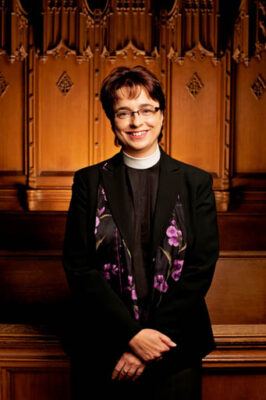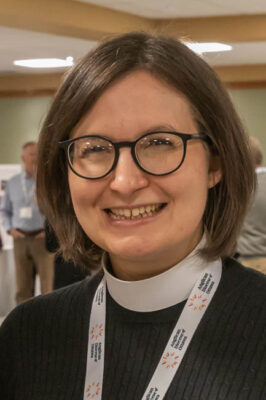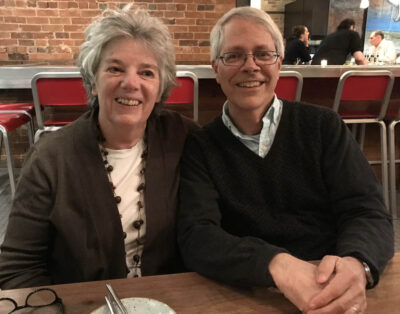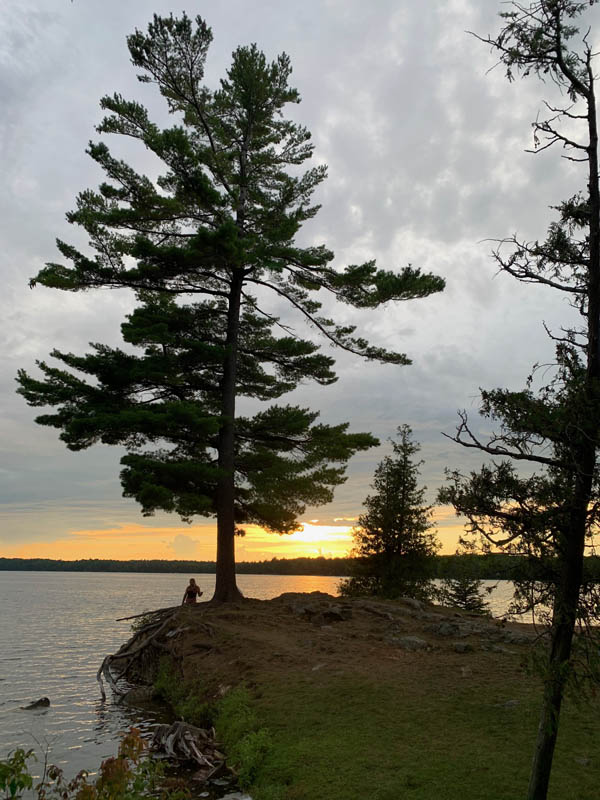Among the many demanding roles clergy step in and out of is providing pastoral care to people who are dying and to their loved ones. Intense as that care is, it is an ancient and familiar path for clergy, but changes in Canadian law in 2016 to allow medical assistance in dying (MAID) added a new and unfamiliar twist to that path.
Initially, eligibility was limited to terminally ill individuals whose natural death was deemed to be reasonably foreseeable, but that requirement was removed in 2021 after a 2019 Superior Court ruling found the “reasonable foreseeability” eligibility criteria as well as the “end-of-life” criterion from Québec’s Act Respecting End-of-Life Care, to be unconstitutional. Eligibility was also to be extended to individuals whose sole medical condition is a mental illness and who otherwise meet all the criteria, but the government has delayed that addition until March 2024 to allow more time to consider the advice from an expert panel and a special parliamentary committee on MAID and mental illness.
In the February 2023 issue of the Anglican Journal, Archbishop Linda Nicholls, Primate of the Anglican Church of Canada, wrote about “The dilemma of MAID.” Looking back, she cited the church’s 1998 report “Care in Dying,” which described support for physician-assisted death as a “failure of human community,” and expressed concern that lack of adequate palliative care, strong family and community supports, and a culture that values youth and independence contributed to an environment where people want to avoid “being a burden.” Both that report and a 2016 report “In Sure and Certain Hope,” were rooted in the commitment to life as a gift from the Creator that is to be treasured, she said.
But she went on to write about the church’s current view. “God has gifted humankind with the capacity to extend life and alleviate suffering through medical intervention…However, some suffering may be prolonged and profoundly difficult to experience or to accompany. …In these final, intractable situations, we acknowledge the conscience and autonomy of the individual to discern the way to choose, knowing that in whatever decision is made we must commit ourselves, and those we walk with, to the mercy and compassion of God. There is no condemnation or abandonment, only deep sorrow that such suffering may precede our death—as well as hope rooted in God’s promise that nothing can separate us from his love (Romans 8:38-39) in this life or the life beyond death.”
Within this cultural, legal and ecclesiastical landscape are people struggling with illness and suffering who may be considering medically assisted dying and their families who may or may not agree with their choice. The clergy members who serve them may have questions of their own about what to expect and how to navigate pastoral care in this still relatively new situation.
The Rev. Canon Catherine Ascah and the Rev. Rosemary Parker have both had several experiences with MAID and offered some of their insights in interviews with Crosstalk.
When asked about the ways in which the experience is different, they both commented on the fact that a medically assisted death is scheduled.
“That’s a little surreal,” said Ascah. “I have been at the bedside of people who have died, and you know roughly when things are getting close, but you don’t actually know when it’s going to happen. With medical assistance in death, it’s very scheduled, whether it is in a hospital setting or in a home. …It is a different feel because we are all sitting around, and we know what’s going to happen next in a very intentional way.”
“There is something unusual about having this on your calendar,” said Parker, who also described that aspect as surreal.
Asked if people look for reassurance about the church’s view of MAID, Ascah said, not usually at the scheduled time, but that often the person has called her earlier on as they considered the possibility to ask what the church’s position is. “My response has always been, ‘Before we get to that, what’s your family’s position on this? Have you talked with your family?’ In some cases, they have broached the topic and in some cases they hadn’t because they really did want to know what the church thought about it [first].” She said she tells them, “I am called to walk with you regardless of what you decide.”
“So, you’re okay with this?” people sometimes ask. “In some cases, I think people are looking for a certain level of sanction by the church. I am pretty careful how I choose my words around it,” Ascah said.
“I just say ‘I strongly encourage you to discuss this with your family, but if this is the decision that you guys decide to, that you want to go with, you need to know that I am going to be available to support you throughout that journey if that’s what you would like.’”
In one particular case, she said, the person had decided on medical assistance in dying very soon after a diagnosis and not all of the family members were okay with it. “I was able to meet with the individual and their family and say, ‘I hear that you don’t want this to be prolonged, but I strongly encourage you to just take one step at a time,’ so it did give the family a bit of a chance to process. Ultimately, it wasn’t the family that said yes, it was the individual, but I do think that there’s this difficult process.” Families want to support and honour their loved ones wishes, but it can be difficult for them during the process and afterwards, she said.
Parker said that in her experiences with MAID, “The individual is generally very, very sure that it’s what God is calling them to do. And I think their strength and just their trust in everything is pretty profound. It’s their faith that is the greatest in the room…It’s a pretty inconceivable idea of deciding to die, but these individuals clearly trust where they are going, trust that they’re going to be caught on the other side. At birth we are caught by loved ones or nurses, and they trust that in a similar way there are loving hands to gather them there too.”
Parker has sometimes been asked to be part of earlier conversations, with doctors, for instance, but generally the focus is on the day of the appointment, she said. Sometimes she is in the room when the doctor comes for the procedure, but in other cases she spends time with the person and family before the doctor arrives and prays elsewhere during the appointment.
Ascah also observed that a MAID situation is, and has to be, very clinical. “You have to submit the application, that has to be witnessed. There’s an interview with the doctor and the plans all get made, but when the day actually comes, and the doctor comes and before they start administering the drugs, there is a final ask. There’s a certain script that they have to say so that it is very clear and unambiguous,” she explained. “The doctor introduces themselves to everyone in the room and says why they are there and then will ask the individual ‘Do you still wish to proceed with this procedure? The person has to be able to answer clearly and unambiguously.”
Asked if she had practical advice for clergy colleagues who are new to MAID experiences, Parker said to “have a plan. The death is planned, so it is okay for you to come in with a bit of a plan. And the family should have a plan. Sometimes the family knows exactly what they are going to do, and they have things that are meaningful for them.”
Both Ascah and Parker said that their roles on the day of the appointment are not very different from other pallative care cases.
Ascah said arrangements are made ahead of time if the person and their family want to take communion, and then she does Prayers for the Church and Prayers for the Dying.
Parker said she finds it helpful to bring some music. “Sometimes we’ll sing, ‘Amazing Grace,’ that kind of thing, to move a little away from words and the emotion of the moment and try to transcend it a little bit.”
In addition to Prayers for the Dying, Parker also recommended an ancient prayer adapted from A Litany Anticipating Heaven. “Sometimes, we say it together as the final medication is administered,” she said, offering this excerpt:
To the Kingdom of Heaven,
Lead her home.
To the Garden of Delight,
Lead her home.
To Eternal Bliss,
Lead her home.
To the Land of Rest,
Lead her home.
To the Company of the Saints,
Lead her home.
To the Safe Harbor,
Lead her home.
“And everybody in the room, including often the doctors, will join in this refrain of ‘Lead them home.’ And at the end of the day, that, as with any death, that’s what we are doing. We are passing the person from this world into the next. We are returning them to God,” Parker said.


The experience of one next-of-kin

In July 2022 Jane Waterston’s husband François Bregha died of ALS, with medical assistance in dying. While not himself a member of any parish, François helped Jane make decisions about his funeral, burial and celebration of life, and was grateful, five days before he died, to spend an hour with the Rev. Colin McFarland.
“As you can imagine, the last week before François’ death was charged with emotions, memories, conversations and preparations,” Jane remembers. “At that point his mobility and energy were extremely compromised, but his mind was active and heart full. His priority was to say special goodbyes to many friends and relatives, with the phone and computer. He had had the opportunity to think about how best to leave us and he was always one to stick to the plan.
“A formal pastoral visit from Colin just days before MAID was administered helped François pause and reflect,” she reports. They spent 45 minutes chatting quietly on the front porch, “then I joined them, wanting to be together for this as well. Before he left, Colin asked if we could pray together, and François (somewhat to my surprise) said yes. This is one of the happy memories I have of that very complicated time—I could see how the physical connection of holding hands and listening to Colin’s intercession brought peace and dignity to what we were going through.”
Jane Waterston is a parishioner at St. Margaret’s Vanier and the designer and production manager for Crosstalk
PHOTO: CONTRIBUTED
PHOTO: ARCHDEACON CHRIS DUNN


Week of Prayer for Christian Unity annual service to be celebrated at Saint Paul University on Jan. 22